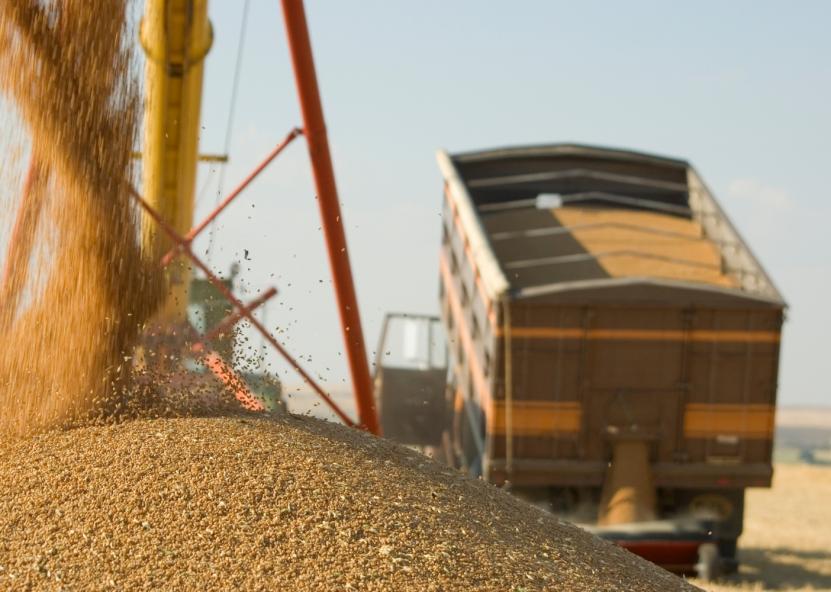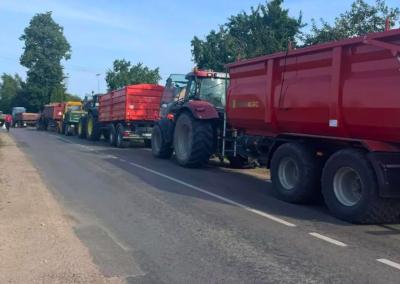Germans call for a halt to renewable energy development after worst grain harvest since 2018
The German Association of Cereal Growers (DRV) says the country is facing its worst cereal harvest since 2018, which could have consequences for domestic cereal supply. The result - 39.1 million tonnes of grain - is around 8 percent below last year's harvest. A worse result was only achieved in 2018, when there was a drought“, – highlights DRV grain market expert Guido Seedler‘is.
Germany consumes around 40 million tonnes of grain domestically, he says, which could leave the country with a supply shortage, especially as quality is often disappointing.The reasons for the poor result are a further decline in area and lower yields per hectare.
„Light and heat are essential for photosynthesis and thus for yield formation. In addition, increasing restrictions on fertilisation and crop protection are also reducing yields,“ says the DRV report.
The association has also slightly lowered expectations for the rapeseed harvest. Germany is expecting a rapeseed harvest of 3.6 million tonnes.
Security of supply is the main issue
„The area under cereals in Germany has been declining for many years. Ten years ago, 6.5 million hectares of cereals were under cultivation, while now just over 5.8 million hectares are under cultivation, explains DRV cereals market expert G. Seedler‘. Wheat, the most important cereal in Germany, has seen a particularly sharp fall in the area under wheat. Over the last 10 years, it has fallen by almost a quarter, from 3.2 million to 2.5 million hectares.
The main reasons for the decline are construction and climate protection measures and the development of renewable energy sources.
„This trend must be stopped. Policies need to be rethought," warns the DRM expert, stressing the need to increase land productivity through state-of-the-art cultivation methods and digital technologies for the application of fertilisers and pesticides.
„Security of supply through local production must become more important again“, – says G. Seedler‘is.
This is also important as the world's population will continue to grow by 2050 and demand for agricultural raw materials is expected to increase by up to 50% by 2050.
Disappointing results abroad
G. Seedler warns against relying on international trade: "This could prove to be a fallacy. Because yields are also disappointing in other European countries, such as France and Spain“.
The unstable weather with extreme rainfall has left its mark there too. And the Black Sea region is also likely to see lower rainfall than last year due to drought. „The supply balance for cereals in both Europe and the world is likely to be very tight again this year.
„Only a forecast good maize harvest may ease the situation somewhat,– says Mr Seedler.










































































































